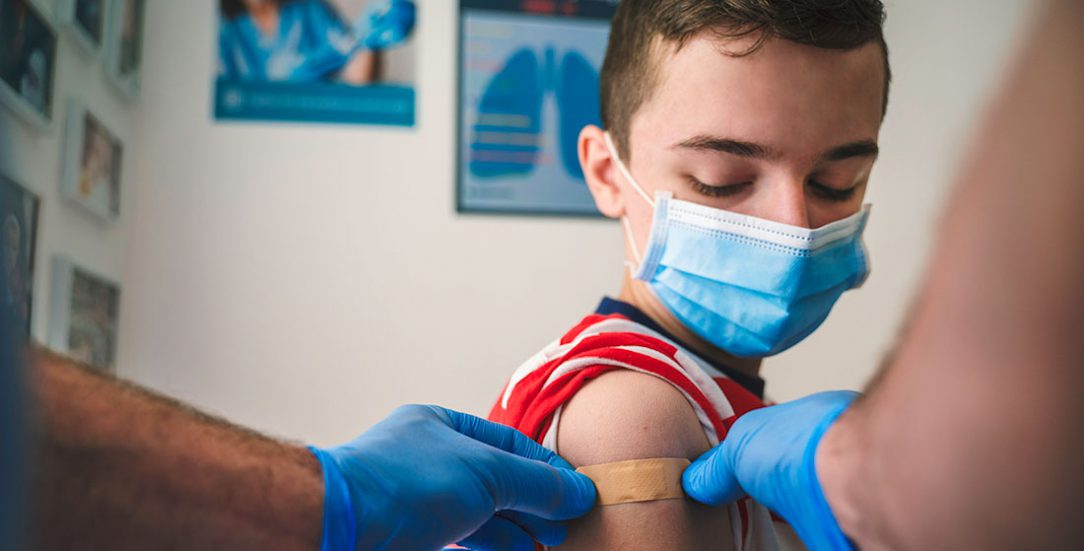
1. Children need to be vaccinated.
COVID-19 is far more dangerous than the potential risks from getting a vaccine. We still don’t know how being infected with COVID-19 will impact children long-term. Children report “long COVID” symptoms which impact their daily life for many weeks after being infected with COVID. COVID-19 is now one of the top 10 causes of death for children in the United States, and 1/3 of adolescents who were hospitalized required intensive care. About 30% of children hospitalized for COVID-19 had no underlying medical condition.

2. The vaccine was not rushed.
Scientists have been working on this technology for more than a decade. No safety steps were skipped to develop COVID-19 vaccines—only red tape and bureaucracy—and the clinical trials went through the same steps as any other vaccine. Data from the clinical trials and real world studies show the vaccines are safe and effective. Scientists were able to study the vaccine quickly because hundreds of thousands of people volunteered for the clinical trials— instead of waiting years to find enough participants.

3. Mild or moderate side effects are common.
Your child may have mild or moderate symptoms after getting vaccinated, like a fever, muscle aches, headaches, feeling tired, or redness around the injection site. This is common after any vaccine, and means your body has started creating an immune response and is learning to fight the disease. Severe side effects and allergic reactions are rare. Your chance of having a life- threatening case of COVID-19 is much higher than your potential risk of ever getting a serious side effect from the vaccine.

4. Long term side effects, like infertility or miscarriage, are unlikely.
If you look at the history of all vaccinations, almost every long-term side effect from vaccination shows up within 6 weeks after the vaccine is given. That’s why the FDA requires a wait time of at least 60 days after the end of a clinical trial before an emergency use authorization (EUA) can be given.
Thousands of women have received the vaccine while they were pregnant or have become pregnant after getting the vaccine. Data shows that COVID-19 vaccines have not caused infertility, miscarriage, or complications with pregnancy or delivery for either the mother or baby. However, we have seen many pregnant women get COVID-19 and suffer from serious complications from the virus.

5. The vaccine is VERY effective.
The clinical trial showed the COVID-19 vaccine is 90-100% effective at keeping children ages 5-15 from getting the virus. No children in the clinical trials got severe illness from COVID-19. The vaccine works against the variants, prevents spread to other people, and may actually improve things for those who are suffering from long-term effects of COVID-19. Getting vaccinated also makes illness milder and shorter for the very few people who do test positive after vaccination.

6. Even if your child already had COVID-19, he or she should still get vaccinated.
Your child should get vaccinated, even if he or she didn’t get very sick from the virus before. Studies show the vaccine provides longer lasting immunity than natural immunity (immunity from having the disease) and protects against variants. Vaccination can keep your child from getting the virus again.

7. COVID-19 mRNA vaccines do not change your DNA.
There are things mRNA vaccines CAN’T do:
- mRNA can’t alter or change your DNA
- mRNA can’t even get into the part of your cells where DNA is located (called the nucleus)
- mRNA can’t change itself and become DNAmRNA is fragile and breaks down very quickly in your body. The ingredients don’t stay in your body and they don’t have any live, weakened, or noninfectious parts of the virus in them that could stay in your body and cause problems later in life.
from COVID-19 by getting them vaccinated.

